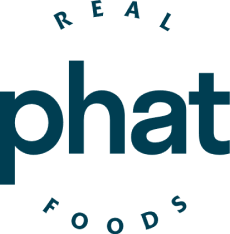Navigating the Maze: Unraveling the Impact of Seed Oils on Our Health
In the ever-evolving landscape of nutrition, one topic that deserves our attention is the impact of seed oils on our health. Seed oils have found their way into many kitchens over the years. However, recent research suggests that their ubiquitous presence might be more detrimental to our well-being than we realize. In this blog, we'll explore the potential downsides of excessive seed oil consumption, emphasizing the importance of reducing seed oil intake and embracing clean eating. Let's delve into this crucial aspect of our diet, keeping your health at the forefront.
-
The Seed Oil Boom
Seed oils, such as soybean, corn, sunflower, and canola oils, have become staples in the modern Western diet. While they are often marketed as heart-healthy options due to their unsaturated fats, the reality is more complex. The process of extracting these oils involves refining, deodorizing, and sometimes even hydrogenating, leading to changes in their chemical structure that may not align with our health goals.
-
The Omega-6 Dilemma
One of the key concerns associated with seed oils is their high omega-6 fatty acid content. While omega-6 fatty acids are essential for our health, an imbalance in the ratio of omega-6 to omega-3 fatty acids can lead to inflammation—a known precursor to various chronic diseases, including heart disease, diabetes, and arthritis.
Historically, our ancestors maintained a more balanced ratio, but the modern Western diet, abundant in processed foods and seed oils, has disrupted this equilibrium. Research suggests that a diet excessively high in omega-6 fatty acids and low in omega-3s can contribute to systemic inflammation, which is now recognized as a common denominator in many chronic diseases.
-
The Culprit: Processing & Heat
The extraction and processing methods employed in the production of seed oils raise additional concerns. Many seed oils are extracted using industrial solvents and subjected to high temperatures during refining. These processes can lead to the formation of harmful compounds, such as trans fats and oxidation byproducts, which have been linked to inflammation and oxidative stress in the body.
Trans fats, in particular, are notorious for their adverse effects on heart health. They not only raise bad cholesterol (LDL) but also lower good cholesterol (HDL), creating a perfect storm for cardiovascular issues. By reducing seed oil intake, we can minimize our exposure to these potentially harmful compounds and pave the way for a healthier cardiovascular system.
-
The Metabolic Toll: Insulin Resistance & Weight Gain
Emerging research suggests a potential link between seed oil consumption and metabolic health. Some studies propose that a diet rich in seed oils may contribute to insulin resistance—a condition where the body's cells no longer respond effectively to insulin, leading to elevated blood sugar levels.
Insulin resistance is a precursor to type 2 diabetes and is also associated with weight gain and obesity. By choosing alternatives to seed oils and adopting a clean eating approach, we can potentially mitigate the risk of developing insulin resistance and its associated health issues.
-
Promoting Clean Eating: A Path to Optimal Health
Clean eating, characterized by a focus on whole, minimally processed foods, offers a compelling alternative to diets laden with seed oils. Here are some practical tips to reduce seed oil intake and embrace clean eating:
- Choose Whole Foods: Opt for whole or minimally processed foods as much as possible. These nutrient-dense choices provide essential vitamins and minerals without the harmful additives found in many processed foods.
- Cook With Healthy Fats: Choose healthier fats like olive oil, avocado oil, and coconut oil in your cooking. These alternatives offer a more favorable fatty acid profile and are less prone to oxidation.
- Read Labels: Be vigilant about reading food labels. Many processed foods, even those marketed as healthy, may contain hidden seed oils. Look for products with minimal, recognizable ingredients.
As we navigate the complex world of nutrition, it's essential to critically evaluate the role of seed oils in our diets. While these oils may have once been perceived as healthy choices, emerging research suggests that moderation and awareness are key. By reducing seed oil intake and embracing clean eating principles, we can optimize our health, lower the risk of inflammation-related diseases, and foster a balanced, sustainable approach to nutrition. Make informed choices, prioritize whole foods, and savor the journey to a healthier, more vibrant life.


